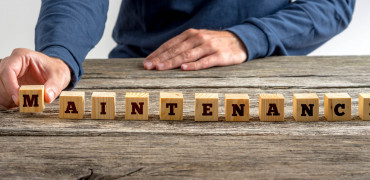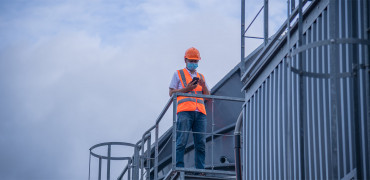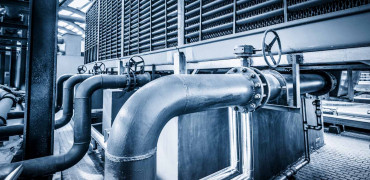With energy prices at the forefront of everyone’s minds, Adrian Mullen talks about how planned preventative maintenance is an important energy efficiency strategy for business owners and facilities managers.
Prime Minister Liz Truss has capped the energy price for businesses and householders – much to everyone’s relief, no doubt.
But this year’s eye-watering energy price increases set nerves jangling in the commercial property sector – from hotels, data centres and pubs to offices. Some have seen price increases of 1,000% on renewal quotes.
While the price cap is welcomed, it seems unlikely that energy prices will fall back to previous levels soon. It has been a wake-up call for building owners and managers to keep a close eye on energy costs going into the future. And this is where good maintenance practice can make a significant impact.
Manufacturers build modern HVAC equipment to last, but it needs regular servicing and maintenance
Efficiency strategies
Service and maintenance doesn’t always leap first to mind when it comes to saving energy – but they can play an important role in efficiency strategies. This is particularly true for HVAC systems, which use around 40% of energy in commercial and public buildings. At Mitsubishi Electric, we develop planned preventative maintenance (PPM) programmes for our clients to ensure their HVAC systems achieve and maintain optimum performance.
The principle of PPM is the provision of regular service and maintenance of HVAC equipment. At its simplest, PPM ensures that equipment doesn’t fail unexpectedly, which leads to problems in the building and repair costs. Tackling faults as they arise is a short-term approach: It costs more to fix an issue than to prevent it from happening.
But PPM has other benefits. It extends the life of HVAC equipment by optimising its operation. As a result, building owners get the best and most energy-efficient performance out of that equipment.
Manufacturers build modern HVAC equipment to last, but it needs regular servicing and maintenance.
Left to its own devices, equipment such as chillers won’t necessarily develop faults, but its performance will degrade over time. This performance fall-off inevitably leads to a system that doesn’t meet building requirements and will reach the end of its life sooner.
Embodied carbon costs
These issues are becoming increasingly important because our energy is becoming more expensive and because legislation is pushing building owners to meet ever-higher energy efficiency targets.
Moreover, there is a growing focus on the ‘embodied’ carbon of buildings, which means ensuring equipment such as chillers have a long and effective operating lifetime.
Increasing concern for sustainability and energy efficiency in buildings is putting FM and maintenance services front and centre in the drive for improved building performance. At Mitsubishi Electric, we focus on a cradle-to-grave approach to HVAC equipment.
Final thoughts
We must all be aware that reducing our reliance on fossil fuels for energy generation is an important goal for the UK.
And to make that possible, we must focus on efficient energy use – otherwise, the switch to renewables will take much longer. Service and maintenance provide many benefits beyond efficiency and should be high on the list of priorities for building owners.
Our expert service and maintenance teams can work on your system from design to commissioning to a complete PPM programme and help you with energy efficiency advice.
Our customers can decide what they need with our bespoke service approach, and rest assured that we can provide it.
If you would like more information about our Service and Maintenance, please click here
Adrian Mullen is Business Development Manager




